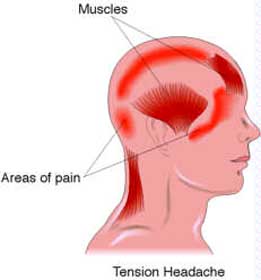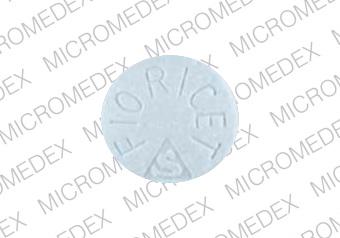
A lot of customers order fioricet online for relief of tension headache. A tension headache is pain or discomfort in your head, scalp, or neck. A tension headache occurs when neck and scalp muscles become tense, or contract. The muscle contractions can be a response to stress, depression, a head injury, or anxiety. A tension headache (tension-type headache) is the most common type of headache, and yet its causes aren’t well understood.
Tension-type headache is a significant cause of sickness absence and impaired ability at work. Tension Headache is classified as a primary headache according to the International Classification of Headache Disorders. It is a very common form of headache and can be:
-
- Episodic Tension Headache (affects 78% of the population). This occurs on fewer than 15 days each month. It can evolve into the chronic variety.
- Chronic Tension Headache (affects 3% of the population). This occurs on more than 15 days each month and has all the features of the episodic Tension Headache.
Tension headaches can last from 30 minutes to 7 days.
If you have a headache on 15 or more days each month over a 3-month period, you may have chronic tension headaches. This type of headache can lead to stress and depression, which in turn can lead to more headaches.
A tension headache is the most common type of headache, characterized by mild to moderate pain and pressure in the head. It typically feels like a tight band or pressure around the forehead or the back of the head and neck. Tension headaches are often described as dull, achy, or squeezing in nature and can last from 30 minutes to several days.
Here are some key features of tension headaches:
- Location: Tension headaches often involve both sides of the head and may affect the forehead, temples, back of the head, or neck. The pain is usually described as a constant pressure or tightness rather than a throbbing sensation.
- Duration: Tension headaches can last anywhere from a few minutes to several days. They are often episodic, occurring sporadically, but some individuals may experience chronic tension headaches that occur frequently or even daily.
- Triggers: Various factors can trigger or exacerbate tension headaches, including stress, anxiety, poor posture, fatigue, hunger, and eye strain. Certain lifestyle factors such as lack of sleep, dehydration, and excessive caffeine or alcohol consumption may also contribute to tension headaches.
- Symptoms: In addition to head pain, tension headaches may be accompanied by other symptoms such as muscle tenderness, neck stiffness, sensitivity to light or sound, and mild nausea. However, they typically do not cause severe symptoms or neurological deficits.
- Management: Treatment for tension headaches often involves over-the-counter pain relievers such as acetaminophen (paracetamol), ibuprofen, or aspirin. Relaxation techniques, stress management strategies, regular exercise, adequate hydration, and maintaining good posture may also help prevent or alleviate tension headaches. In some cases, prescription medications or interventions such as physical therapy, massage, or acupuncture may be recommended for individuals with chronic or severe tension headaches.
The Cause of Tension Headache
The exact cause of tension headaches is not fully understood, but they are believed to result from a combination of physical, environmental, and psychological factors. Here are some common contributors to tension headaches:
- Muscle Tension and Contractions: Tension headaches are often associated with muscle tension and contractions in the head, neck, and scalp. Prolonged contraction of these muscles can lead to the development of tension headaches. Factors such as poor posture, repetitive movements, and physical strain can exacerbate muscle tension.
- Stress and Anxiety: Emotional stress, anxiety, and psychological factors play a significant role in triggering tension headaches. Stressful life events, work-related pressure, relationship issues, and other stressors can contribute to muscle tension and heightened sensitivity to pain, increasing the risk of tension headaches.
- Poor Ergonomics: Spending long hours in front of a computer or desk with improper ergonomics can strain the muscles of the neck, shoulders, and upper back, leading to tension headaches. Poor posture, awkward positioning, and inadequate support for the head and neck can exacerbate muscle tension and discomfort.
- Eye Strain: Activities that require prolonged focus, such as reading, working on a computer, or using electronic devices, can strain the muscles around the eyes and contribute to tension headaches. Uncorrected vision problems, glare, and inadequate lighting may also increase the risk of eye strain and tension headaches.
- Sleep Disturbances: Lack of sleep, poor sleep quality, and irregular sleep patterns can disrupt the body’s natural rhythms and increase susceptibility to tension headaches. Sleep deprivation can exacerbate stress, impair cognitive function, and heighten pain sensitivity, all of which can contribute to the development of tension headaches.
- Caffeine and Alcohol: Excessive consumption of caffeine or alcohol can trigger or worsen tension headaches in some individuals. Caffeine withdrawal headaches may occur in individuals who abruptly reduce their caffeine intake, while alcohol-induced headaches may result from dehydration, vasodilation, or chemical triggers in alcoholic beverages.
- Environmental Factors: Environmental factors such as loud noises, strong odors, bright lights, and changes in weather conditions can trigger tension headaches in susceptible individuals. Sensory stimuli and environmental stressors can activate the trigeminal nerve and contribute to headache development.
Triggers of Tension Headaches
A variety of foods, activities, and stress can cause these types of contractions. Some people develop tension headaches after staring at a computer screen for long hours or driving for long periods. Cold temperatures may also trigger a tension headache in some people.
Other factors that may trigger a tension headache include:
- drinking alcohol
- anxiety
- depression
- Poor posture
- Poor sleep
- Stress
- Muscular tightness
- eye strain
- fatigue
- smoking
- a cold or flu
- a sinus infection
- caffeine
- Usually relieved by simple analgesics.
57% Headaches are tension headaches. You can follow the steps here to prevent your headache. What you need more details about prevent tension headache or cure your tension headaches?
Treatment and Medicines of Tension Headaches
Some people with tension headaches don’t seek medical attention and try to treat the pain on their own. Unfortunately, repeated use of over-the-counter (OTC) pain relievers can actually cause overuse headaches.
A variety of medications, both OTC and prescription, are available to reduce the pain of a headache, including:
-
- Pain relievers. Simple OTC pain relievers are usually the first line of treatment for reducing headache pain. These include the drugs aspirin, ibuprofen (Advil, Motrin IB, Diclofenac, Paracetamol:others) and naproxen (Aleve). Prescription medications include naproxen (Naprosyn), indomethacin (Indocin) and ketorolac (Ketorolac Tromethamine).
- Combination medications. Aspirin or acetaminophen or both are often combined with caffeine or a sedative drug in a single medication. Combination drugs may be more effective than are single-ingredient pain relievers. Many combination drugs are available OTC.
- Triptans and narcotics. For people who experience both migraines and episodic tension headaches, a triptan can effectively relieve the pain of both headaches. Opiates, or narcotics, are rarely used because of their side effects and potential for dependency.

- Fioricet fioricet is a very effective headache reliever. Fioricet is consist of butalbital, apap, and caffeine.Acetaminophen is a pain reliever and fever reducer. Butalbital is in a group of drugs called barbiturates. It relaxes muscle contractions involved in a tension headache. Caffeine is a central nervous system stimulant. It relaxes muscle contractions in blood vessels to improve blood flow.Fioricet is used to treat tension headaches that are caused by muscle contractions
Even if you are taking tension headache medicines, you still need manage your headaches. Home treatment may help you avoid headaches. You can:
-
-
- Try to reduce stress.
- Make sure you sleep, exercise, and eat on a regular schedule.
- Make sure you practice good posture. Stand and sit up straight.
- Try not to strain your eyes when you use your computer.
- Get treatment for depression or anxiety if you have those health problems.
- Try using a headache diary. Every time you get a headache, write down the date, the time, and what you were doing and feeling before your headache started. This may help you and your doctor find out what is causing your headaches. Then your doctor can use the diary to plan your treatment.
-
How to Prevent Tension Headache ?
Preventing tension headaches involves adopting lifestyle modifications and implementing stress management strategies to reduce triggers and promote overall well-being. Here are some tips for preventing tension headaches:
- Maintain Good Posture: Practice proper posture while sitting, standing, and engaging in activities to reduce strain on the muscles of the head, neck, and shoulders. Avoid slouching and maintain a neutral spine alignment.
- Manage Stress: Incorporate stress reduction techniques into your daily routine, such as deep breathing exercises, meditation, yoga, progressive muscle relaxation, or mindfulness practices. Identify sources of stress and develop coping strategies to manage them effectively.
- Establish Regular Sleep Patterns: Prioritize adequate sleep and establish a consistent sleep schedule. Aim for 7-9 hours of quality sleep each night and create a relaxing bedtime routine to promote restful sleep.
- Stay Hydrated: Drink plenty of water throughout the day to stay hydrated and maintain optimal bodily functions. Dehydration can exacerbate headache symptoms, so aim to consume adequate fluids, especially in hot or dry environments.
- Limit Caffeine and Alcohol: Monitor your consumption of caffeine and alcohol, as excessive intake can trigger or worsen tension headaches in some individuals. Gradually reduce caffeine intake if you experience withdrawal headaches, and limit alcohol consumption to moderate levels.
- Take Breaks from Screen Time: If you spend long hours working on a computer, reading, or using electronic devices, take regular breaks to rest your eyes and stretch your muscles. Follow the 20-20-20 rule: every 20 minutes, look at something 20 feet away for at least 20 seconds.
- Exercise Regularly: Engage in regular physical activity to promote overall health and reduce muscle tension. Choose low-impact exercises such as walking, swimming, cycling, or yoga to improve circulation, reduce stress, and relieve tension in the muscles.
- Maintain a Balanced Diet: Eat a nutritious diet rich in fruits, vegetables, whole grains, and lean proteins. Avoid skipping meals, as low blood sugar levels can trigger headaches. Limit consumption of processed foods, sugary snacks, and foods containing artificial additives or preservatives.
- Practice Relaxation Techniques: Incorporate relaxation techniques into your daily routine to reduce muscle tension and promote relaxation. Techniques such as progressive muscle relaxation, guided imagery, or aromatherapy can help alleviate stress and prevent tension headaches.
- Seek Professional Help: If tension headaches persist despite self-care measures, consider seeking guidance from a healthcare provider. They can assess your symptoms, provide personalized recommendations, and offer additional treatments such as medication, physical therapy, or behavioral therapy to manage tension headaches effectively.